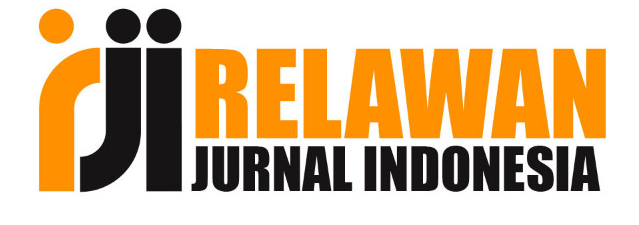THE ADVANTAGES OF USING COMMUNICATION GAMES IN TEACHING ENGLISH AS FOREIGN LANGUAGE
DOI:
https://doi.org/10.36982/jge.v6i1.429Abstract
Games promote learners’ interaction.Interaction comprises the nature of classroom pedagogy and classroom behavior. Pair or group work is one of the main ways to increase cooperation. Many games can be played in pairs or in small groups, thereby providing an opportunity to develop their interpersonal skills such as the skill of disagreeing politely or the skill of asking for help. In the classroom learners will definitely participate in the activities. Therefore, in groups or in pairs, they are more willing to ask questions, communicate and discuss topics with their partners and think creatively about how to use foreign language to achieve their goals. The competition in the games gives students a natural opportunity to work together and communicate with each other a lot.Games improve learners’ language acquisition.Thanks to the motivation and interaction created by games, students can acquire knowledge faster and more effectively than by other means. Games can stimulate and encourage students to participate in the activity since they naturally want to win. Apart from having fun, students are learning. They acquire a new language. Students begin to realize that they have to use the language if they want others to understand what they are saying.Furthermore,games can lower anxiety. In the easy, relaxed atmosphere which is created by using games, students remember things faster and better.The meaning of the language students listen to, read, speak and write in will be more vividly experienced in a game and, therefore, they will better remember the language they learn.Games increase learners’ achievement.Games can involve all the basic language skills, i.e., listening, speaking, reading, and writing, and a number of skills are often involved in the same game.Games can motivate learners, promote learners’ interaction, and improve learners’ acquisition. As a result, games can increase learners’ achievement, which means that learners’ test results, ability of communication, knowledge of vocabulary, or other language skills can improve.
Key words: Communication Games, Advantages, English
References
Bashir, M., Azeem, M., &Dogar, A. H. (2011). Factor effecting students’ English speaking skills. British Journal of Arts and Social Sciences, 2(1), 34-50. Retrieved from http://www.bjournal.co.uk/BJASS.aspx
Crystal, D. (2003). English as a global language (2nded.). Cambridge: Cambridge University Press.
Depdiknas. (2006). Silabus kurikulum tingkat satuan pendidikan 2006. Jakarta: Depdiknas.
Hadfield, J. (1990). Intermediate communication games. England: Longman.
Harmer, J. (2001). How to teach English: An introduction to the practice of English language teaching. United Kingdom, UK: Longman.
Harmer, J. (2007). The practice of English language teaching. United Kingdom, UK: Longman.
Hikmah, S. (2013). Teaching English for senior high school in cahayamadanibanten boarding school in banten province. 2nd International Seminar on Quality and Affordable Education (ISQAE), 201-206. Retrieved from http://educ.utm.my/wp-content/uploads/2013/11/29.pdf
Kemdikbud. (2014). Paparan wakil menteri pendidikan dan kebudayaan R.I bidang pendidikan: Konsep dan implementasi kurikulum 2013. Retrieved from http://kemdikbud.go.id/kemdikbud/dokumen/Paparan/Paparan%20 Wamendik.pdf
Kemdikbud. (2014). BahasaInggris: Studidanpengajaran. Jakarta: Balitbang
Leon, W. U., &Cely, E. V. (2010). Encouraging teenagers to improve speaking skills through games in a colombian public school. PROFILE Teacher Development Programme, 12(1), 11-31. Retrieved from http://www. revistas.unal.edu.co/index.php/profile/article/view/13831/36804
Martinson, B. E., & Chu, S. (2008). Impact of learning style on achievement when using course content delivered via a game-based learning object. In R. E. Ferdig (Ed.), Handbook of Research on Effective Electronic Gaming in Education. Pennsylvania: IGI Global.
McDonough, J., & Shaw, C. (1993). Materials and methods in ELT: A teacher’s guide. Massachusetts: Blackwell.
Nur, M. R., &Madkur, A. (2014). Teachers’ voices on the 2013 curriculum for English instructional activities. Indonesian Journal of English Education (IJEE), 1(2), 119-134. Retrieved from http://journal.uinjkt.ac.id/index.php/ ijee/article/download/1340/1189
OECD. (2014). PISA 2012 results in focus: What 15-year-olds know and what they can do with what they know. Retrieved from https://www.oecd.org/pisa /keyfindings/pisa-2012-results-overview.pdf
Oxford. (2008). Learner’s pocket dictionary (4thed.). Oxford: Oxford University Press
Permendikbud. (2013). Kerangka dasar dan struktur kurikulum sekolah menengah kejuruan/ madrasah aliyahke juruan no. 70, 1-220. Retrieved fromhttp://luk.staff.ugm.ac.id/atur/bsnp/Permendikbud70-2013KD-Struktur Kurikulum-SMK-MAK.pdf
Rini, J. E. (2014). English in Indonesia:Its position among other languages in Indonesia. Beyond Words,2(2), 19-40. Retrieved from http://journal.wima. ac.id/index.php/ BW/article/download/591/654
Wright, A., Betteridge, D., &Buckby, M. (1997). Games for Language Learning: New Edition. United Kingdom, UK: Cambridge University Press.
Wright, A., Betteridge, D., &Buckby, M. (2006). Games for language learning (3rded.). New York, NY: Cambridge University Press.
Downloads
Published
How to Cite
Issue
Section
License
Global Expert: Jurnal Bahasa dan Sastra is published by Universitas Indo Global Mandiri and licensed under a Creative Commons Attribution-ShareAlike 4.0 International License.











